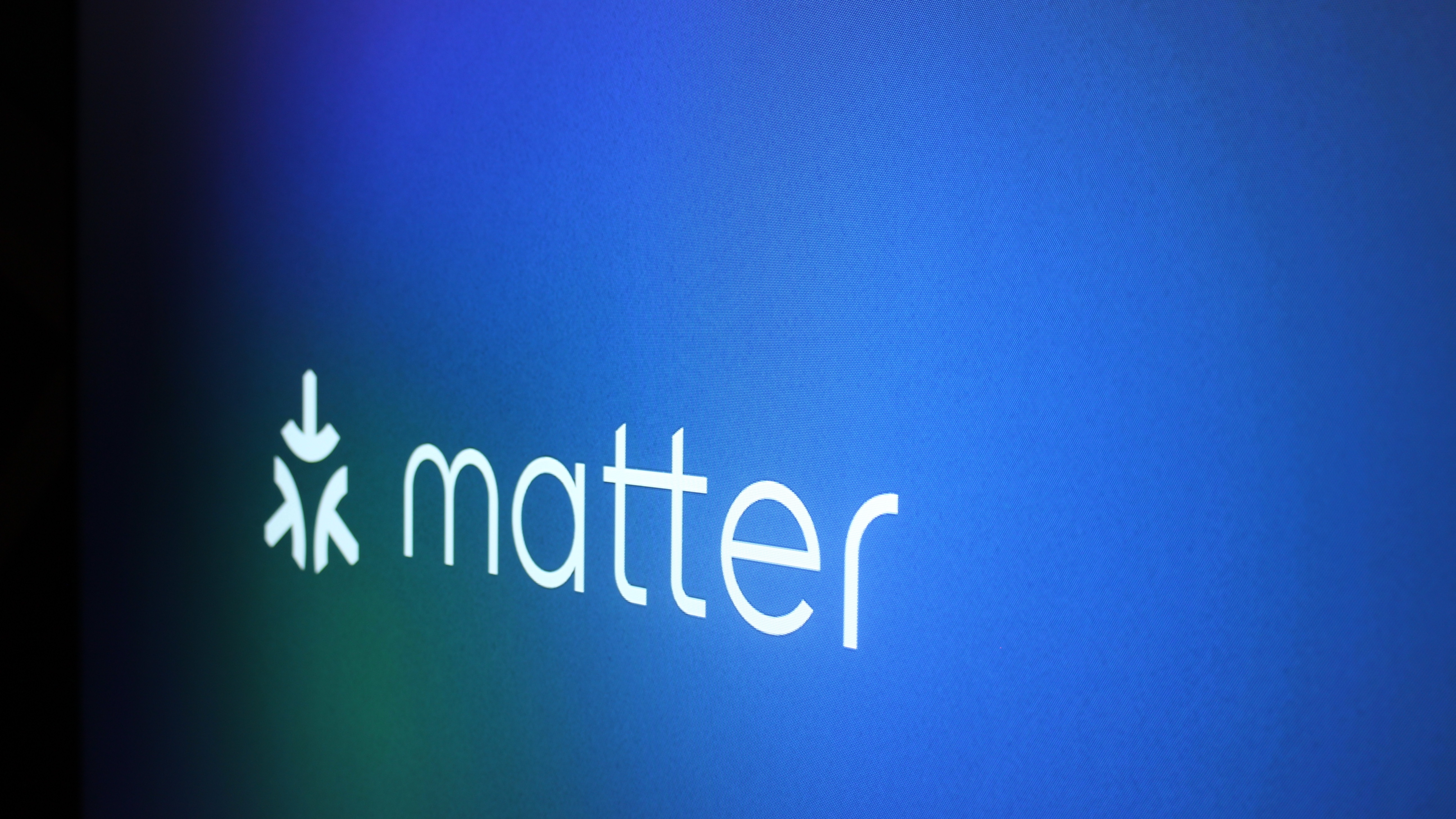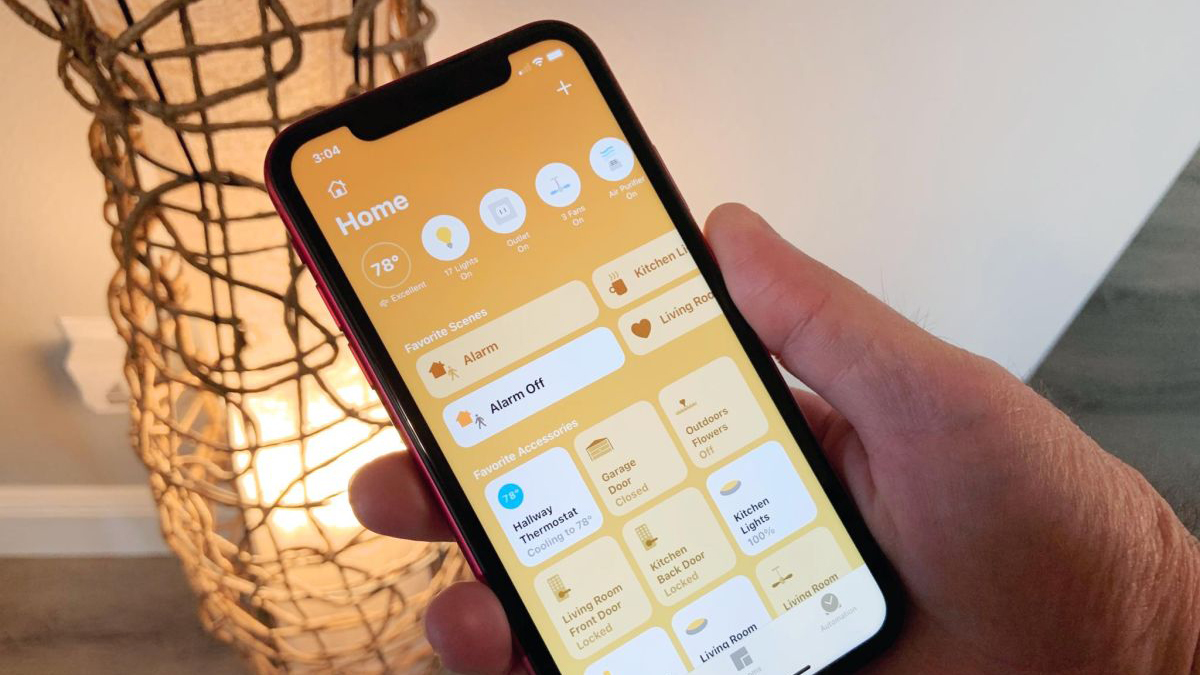Matter on the future of the smart home (from the people who made it)

Matter is a new smart home connectivity standard that promises to bridge the divide between ecosystems you’re probably very familiar with, Apple’s HomeKit, Google Home, and Amazon Smart Home, and to bring together the products from major players like Nanoleaf, Eve, Netatmo, Philips Hue, Lutron, Aqara, and more like never before.
For the last few days, iMore has been boots on the ground in Amsterdam for the public launch of Matter 1.0. The first iteration of a new smart home protocol could completely change the way we buy and use devices in the smart home. No longer will customers be forced to choose products based on support for HomeKit, or compatibility with Siri. Instead, the only choice will be between devices based on form, functionality, and design, with Matter unifying the entire platform.
Still in its infancy, I’ve come away convinced that there are still some big questions that Matter and its adherents have to answer if they want to convince customers to come along for the ride.
But speaking to product makers passionate about the smart home, and the minds behind the big companies making Matter possible, it’s clear that everyone involved is excited about the changes Matter could bring to the smart home. We spoke with CSA CEO Tobin Richardson, Nanoleaf’s Philippe Delplancke, Netatno’s Florian Deleuil, Eve PR representative Dan Turk, and Amazon’s Chris DeCenzo.
Why are companies joining Matter?

Matter says that it is the foundation for connected things and an “industry-unifying standard” that will deliver reliable, secure connectivity. It sounds like plenty of companies didn’t really take much convincing.
“I will say that we started to look at Matter since the very beginning, because we were already discussing a lot with Apple, Google, and Amazon to make our product compatible with their ecosystems,” said Florian Deleuil, Marketing and Product Director at Netatmo.
“It’s the logical next step,” he says and described the process as very natural. Where now Netatmo must develop for three ecosystems, Google, Amazon, and Apple, with Matter it will be able to develop for one, focusing R&D instead on innovation and added value.
iMore offers spot-on advice and guidance from our team of experts, with decades of Apple device experience to lean on. Learn more with iMore!
"When we started hearing about this two years ago, we learned that we'll be able to connect with all these other ecosystems without sacrificing privacy and security. We've been so dedicated to that we're like, 'Okay, now we've got a business opportunity," said Eve PR representative Dan Turk.
"We can open up with all these other audiences without actually having to sacrifice any of that [privacy and security]. Not only did we jump on board, we dove right in."
"Overall, we understood the opportunity that was here in terms of growing smart home and growing selection for customers and so sometimes you have to look around corners and see an opportunity to standardize and be confident that your customers love the experience that they get from your product," says Amazon's Chris DeCenzo.
How will Matter impact smart home users?
So how will Matter change the way we use and interact with the smart home, and how will it change the way we buy products?
“Matter delivers as it removes the complexity for the consumer,“ says CEO Tobin Richardson.
“It takes away the burden or the hurdle that consumers may have as they think about getting devices to take on basic, simple tasks.
“It really provides that foundation and it removes the need for consumers to be network administrators, that simplifies so much in the smart home network so that you don't have to worry about how IKEA does its joining process, how Google does its process.
"When it comes to the impact of Matter, there are some really exciting future prospects we probably can’t even imagine. But right now, the order of the day is interoperability."
What's the biggest benefit of Matter?

“Interoperability,” is Nanoleaf’s Philippe Delplancke fervent response to what makes Matter... matter.
“It’s huge, it's really what has been a headache for some users in the past. Even if I take my own experience, my wife is on iOS, and I’m on Android. And you know, when we have to decide on a smart voice assistant or product, you know, we have to think of 'Oh, who is going to be able to use it.'”
“The interoperability is really important to consumers, giving them more choice,” says Amazon’s Chris DeCenzo. “There should be more products available to them —the interoperability aspect in it primarily results from device makers, you know, they can build a product and they don't have to invest in six different versions of it, six different kinds of hardware because of all the different protocols that are out there.”
Interoperability is the main benefit of Matter, and that much is clear to CEO Tobin Richardson, too. “I would say interoperability and simplicity is one of the biggest benefits that Matter really delivers.”
What does the future of Matter look like?
“I think tomorrow when people like to buy a smart home product, it will be like today when you want to buy an [audio] headset,” says Netatmo’s Florian Deleuil, explaining that headphone buyers just need to look for the Bluetooth sign to know that a product will work with their smartphone. One day Matter will do the same thing for the smart home.
“One of the areas that is most exciting to me that we'll see in future releases is really kind of that human side, 'how do I how do I get to become a better human?'” says Richardson. “How can we have devices that help us just be more human? I'm really excited to kind of think about how these companies are going to do this, in terms of ways that we see in health and wellness apps, as well as devices that come together. And then you can start looking at things like preventive medicine.”
“Today is basically just a first step,” says Delplancke. “It's a foundation. So there’s still the rest of the iceberg to explore.
"We have been limited so far in using our most advanced features with smart home platforms. Basically, today, if you use our products through the Apple Home hub or Google Assistant, you can switch devices on and change the colors, dimming, stuff like that. But the most advanced features are not able to be deployed to the smartphone platforms. We hope that with the adoption of Matter by the world smartphone market, let's say we'll be able to bring those additional features, advanced features to the platforms so people can really enjoy the full Nanoleaf experience, whatever platform they are using in the end."
So why should users invest in another ecosystem?
“We've always had questions about what is the best technology. What is the right technology? What's the right approach, the winning technology," says Richardson on the constant battle between competing tech platforms.
“The winning approach is one that has all the companies behind it, and it's as simple as that.” Richardson clearly believes that the buy-in Matter has from a swathe of companies including heavy hitters like Google, Amazon, and Apple will be enough to lure customers to the new standard.
A new standard will also bring scale. "The fact that we are all working together it's a real opportunity to make it mass market," says Deleuil.
There are some questions that Matter still has to answer if it wants to become the next big thing in smart home connectivity, but with all the major players at the table and tangible excitement from developers and vendors, it seems like a new era of the smart home could truly be upon us.
Interview quotes have been edited for clarity.

Stephen Warwick has written about Apple for five years at iMore and previously elsewhere. He covers all of iMore's latest breaking news regarding all of Apple's products and services, both hardware and software. Stephen has interviewed industry experts in a range of fields including finance, litigation, security, and more. He also specializes in curating and reviewing audio hardware and has experience beyond journalism in sound engineering, production, and design.
Before becoming a writer Stephen studied Ancient History at University and also worked at Apple for more than two years. Stephen is also a host on the iMore show, a weekly podcast recorded live that discusses the latest in breaking Apple news, as well as featuring fun trivia about all things Apple. Follow him on Twitter @stephenwarwick9
